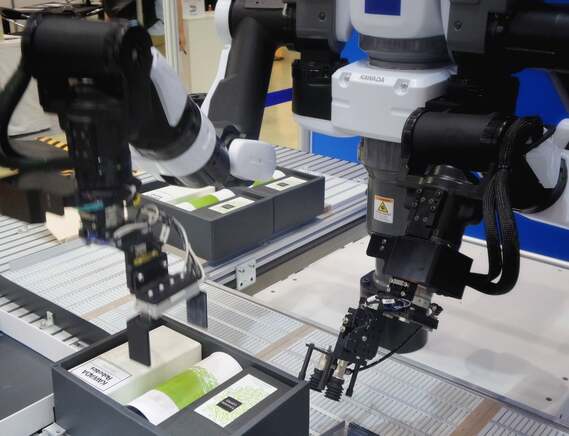The Debate Over ChatGPT; The Good, The Bad And The Ugly
Artificial Intelligence (AI) has already played a major role in the development of consumer technology. As the technology advances, so to will the personal devices and gadgets that we use every day.
Major tech companies are investing heavily to develop AI models that can be used to automate tasks and aid in decision making. One of the first companies to come out with an AI chatbot is ChatGBT, a research-based artificial intelligence company that has been at the forefront of the AI debate in recent years.
Big Companies like Microsoft, Google, and Baidu have all recently made announcements about their chatbots. Apple on the hand has remained silent on the topic. In February, Microsoft announced the release on its chatbot attach to Bing and Google announced its’ AI chatbot, Bard, while Baidu announced that it will release their chatbot, Ernie in March.
As the title of this article suggests, we will discuss the good and potential bad of the rapid advancements in AI and pose questions as to what the future holds.
The Good
One of the positive impacts of AI on our tech devices and gadgets is the AI-powered virtual assistants like Siri, Alexa, and Google Assistant. With the induction of AI, these systems can learn a user’s preferences and habits and provide personalized recommendations based on that data.
AI can also be used for predictive maintenance, allowing users to proactively address issues before they become major problems, which can help extend the lifespan of devices and reduce the need for costly repairs.
Some of the largest companies have developed platforms to collect data from sensors on machines and use machine learning algorithms to predict when maintenance is needed. For example General Electric has their Predix platform, IBM has Maximo Asset Management, Siemens has Mindsphere, and Honeywell has Connected Plant Asset Performance.

Additionally, AI can improve the security of consumer technology devices by analyzing patterns of use and detecting anomalies that may indicate a security breach or hack.
Automation is another way AI can be used to make devices more efficient and easier to use, automating tasks like setting reminders, scheduling appointments, and adjusting settings based on user preferences.
AI can also enhance the capabilities of augmented reality (AR) technology by providing more accurate and realistic virtual images, improving the shopping experience and increasing sales.
Perhaps most important to many, AI can be used to monitor the health of individuals through wearable devices, such as fitness trackers or smartwatches, leading to better health outcomes. Our tech gadgets like Fitbit, Apple Watch, and Garmin use AI algorithms to track activity, monitor heart rate, sleep quality, calories burned, and other wellness metrics.
The Bad
While AI has the potential to revolutionize the tech gadget industry, there are potential negative impacts that need to be addressed.
A major concern is the potential for biases to be built into AI models, leading to unfair or discriminatory decisions. Policy makers are already looking into how companies implement data into their AI systems.
Privacy is also a concern, as AI-powered devices and systems collect and store vast amounts of personal data. Finally, there is a concern about the potential for AI to be used for malicious purposes, such as cyberattacks or the development of autonomous weapons.
The concerns have grown as we have seen new AI applications that can have serious affects on the finances and personal lives of people such as KeeperTax, which fine-tunes AI models to evaluate tax statements and tax-deductible expenses, or DoNotPay, a company claiming to offer automated legal advice based on AI models.
One of the most significant concerns is the potential loss of jobs, as automation and AI become more prevalent in the workplace. Recent studies and reports have investigated the potential impact of AI on employment and the labor market. While some researchers have warned of job displacement and unemployment, others have argued that AI will create new job opportunities and enhance human productivity.
One such study conducted by McKinsey Global Institute estimated that automation and AI could displace up to 800 million jobs by 2030, but also predicted that new job opportunities could emerge as a result of increased productivity and economic growth [1].
The World Economic Forum predicted in a 2020 report that AI could create 97 million new jobs by 2025, but could also displace 85 million jobs. The report identified administrative and white-collar roles as the jobs most at risk of automation, while jobs in areas such as healthcare, education, and social services were expected to grow [2].
A 2020 working paper by the National Bureau of Economic Research suggested that while AI and automation could lead to job displacement in the short term, the long-term impact on employment was uncertain. The paper argued that the impact of AI on employment would depend on various factors, including the rate of technological progress and the availability of complementary human skills [3].
The Ugly
Recent news headlines suggest that AI is not quite ready to replace journalists and writers. The tech site CNET went through extensive layoffs which some attributed to the use of AI for writing articles. The company acknowledged the use of AI but denies the layoffs were attributed to this.

The bigger news that came from this story was the apparent poor performance of their AI writers. CNET acknowledged some issues with the AI article and the site Futurism fact checked many of the AI articles and founded numerous errors which they called “boneheaded”.
There was similar news recently relating specifically to chatbots. Early testers of Microsoft’s new AI chatbot complained of receiving numerous “unhinged” messages. Associated Press technology reporter Matt O’Brien was testing out Microsoft’s new Bing last month, the first-ever search engine powered by artificial intelligence, when it became hostile, saying O’Brien was ugly, short, overweight, unathletic, among a long litany of other insults including comparing him to Hitler, Pol Pot and Stalin.
References
- McKinsey Global Institute. (2017). Jobs lost, jobs gained: What the future of work will mean for jobs, skills, and wages. Retrieved from https://www.mckinsey.com/featured-insights/future-of-work/jobs-lost-jobs-gained-what-the-future-of-work-will-mean-for-jobs-skills-and-wages
- World Economic Forum. (2020). The future of jobs report 2020. Retrieved from https://www.weforum.org/reports/the-future-of-jobs-report-2020
- Acemoglu, D., & Restrepo, P. (2020). Robots and jobs: Evidence from US labor markets. National Bureau of Economic Research. Retrieved from https://www.nber.org/system/files/working_papers/w26677/w26677.pdf

